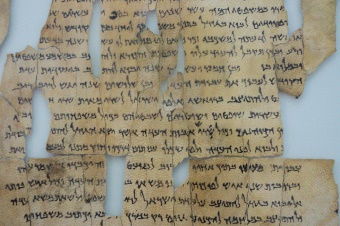CHURCH & MINISTRY
Is the Bible Corrupted?
By: Dillon Burroughs

First, consider the vast number of ancient manuscripts of the Bible. For example, there are over 5,800 manuscript copies of the New Testament or portions of it available in its original Greek language. Over 10,000 additional manuscripts exist in Latin, Syriac, Coptic, Armenian, Gothic, and other languages.
How does this compare with other ancient writings? No other document is even close. The ancient writing that has the second-most manuscript copies available is Homer. Approximately 643 copies of his writings appear. Only seven manuscript copies of Plato exist. If we are to dismiss the Bible due to an inadequate number of manuscripts, we must logically dismiss every single written document from the ancient world.
Second, the Bible includes early copies of its manuscripts. Nearly every book of the Old Testament was included in the findings of the Dead Sea Scrolls found starting in 1947. These documents date from the second century B.C. to the first century A.D. In other words, books such as Isaiah (traditionally written around 700 B.C.) were found in copies dating from only a few hundred years later.
The New Testament evidence is even stronger. A fragment of John's Gospel has been discovered that has been dated to approximately 125 A.D. Numerous New Testament books were being quoted by Clement of Rome (95 A.D.), Ignatius (c. 107 A.D.), and Polycarp (c. 110 A.D.). The earliest complete New Testament is Codex Sinaiticus, completed in the mid-fourth century, revealing the complete New Testament had been in circulation as a collection long before that time.
Finally, the Bible includes extremely accurate manuscripts. Comparisons of the many ancient texts of the New Testament, for example, reveal that less than one percent of the differences involve anything beyond a minor misspelling. None deal with essential Christian doctrines.
The clear answer to "Do we have what they wrote?" is a resounding yes. We can confidently know that the Bible we have today is the same essential text written many years ago by those inspired by God (2 Peter 1:19-21) to author the living and active Word of God (Hebrews 4:12). As Paul wrote, "All Scripture is breathed out by God and profitable for teaching, for reproof, for correction, and for training in righteousness, that the man of God may be complete, equipped for every good work."
Image Credit: Ken and Nyetta; "Detail From A Dead Sea Scroll"; Creative Commons
comments powered by Disqus
Published 1-31-12

